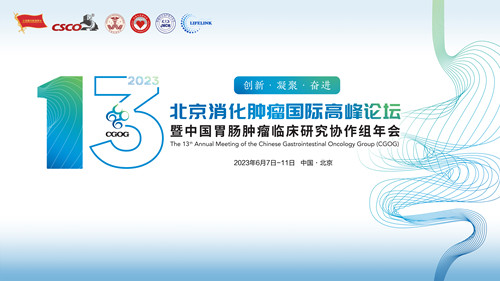金砖国家卫生会议发表联合公报
一、2012年5月22日,巴西、中国和南非卫生部长、俄罗斯常驻代表、印度卫生和家庭福利秘书代表金砖国家在日内瓦召开的第65届世界卫生大会期间举行会议。
二、忆及2011年首次金砖国家卫生部长北京宣言,强调技术转让的重要性和需求,这是增强发展中国家能力的重要途径;强调仿制药在推动实现卫生权、确定研发重点以及金砖国家间合作的作用,该合作包括以可持续的方式支持技术转让和创新,使金砖国家在获得并改进技术方面的合作得以加强。
5月22日,在瑞士日内瓦参加第65届世界卫生大会期间,卫生部部长陈竺、我常驻联合国日内瓦代表团大使刘振民等参加了金砖国家卫生会议。会后发表了联合公报。联合公报中、英文全文如下:
金砖国家卫生联合公报(译文)
(2012年5月22日,日内瓦)
一、2012年5月22日,巴西、中国和南非卫生部长、俄罗斯常驻代表、印度卫生和家庭福利秘书代表金砖国家在日内瓦召开的第65届世界卫生大会期间举行会议。
二、忆及2011年首次金砖国家卫生部长北京宣言,强调技术转让的重要性和需求,这是增强发展中国家能力的重要途径;强调仿制药在推动实现卫生权、确定研发重点以及金砖国家间合作的作用,该合作包括以可持续的方式支持技术转让和创新,使金砖国家在获得并改进技术方面的合作得以加强。
三、根据2012年金砖国家峰会德里宣言,敦促金砖国家卫生部长会议机制化,以便金砖国家能够确定共同目标,例如推动包括药品在内的卫生技术的普遍可及,特别是在成本增加、传染性疾病和非传染性疾病负担上升的情况下,鼓励研究机构间,通过诸如联合项目、研讨会、互访等方式开展交流,尤其是鼓励药品和卫生相关领域的青年科学家间的交流。
四、感谢陈冯富珍博士在其担任世界卫生组织总干事第一个任期内所做的工作。支持陈冯富珍博士连任,相信她有能力领导世界卫生组织应对全球卫生新挑战。
五、就金砖国家卫生领域合作交换看法,这些合作对金砖国家乃至全世界人民的福祉有益,认为分享这些领域的观点是有价值的。
六、再次承诺向人民提供卫生保健,特别是促进药品可及,承诺应对健康的社会决定因素。赞赏2011年10月在里约热内卢召开的健康社会决定因素全球会议的成果,支持世界卫生大会认可里约政治宣言,支持在评估全球健康需求时充分考虑健康的社会决定因素,包括在世界卫生组织改革和其未来工作中。
七、强调健康全民覆盖的重要性,这是实现健康权的必要工具。欢迎国际社会对健康全民覆盖和可持续发展的日益支持。支持世界卫生组织在推广健康全民覆盖领域发挥领导作用。
八、重申世界卫生组织改革进程的重要性,强调有必要确保该机构透明和包容性的决策过程。在此情况下,强调多边机制作为加强世界卫生组织作为全球卫生协调机制并使之合法化的基本原则,推动世界卫生组织成员国在卫生相关议题加强合作。
九、承认传染病和非传染性疾病的双重负担,要求对卫生部门增加投资,加强协调一致的跨部门行动。
十、认识到非传染性疾病预防和控制方面取得的进展,特别是关于非传染性疾病的莫斯科宣言、世界卫生大会决议WHA64.11,以及2011年联合国关于非传染性疾病高级别会议的政治宣言。
十一、承诺开展协作,确定以循证为基础的干预措施,以减少与非传染性疾病相关风险因素的危害。
十二、认识到金砖国家研究机构具备不断增长的技术能力,决定鼓励科学家的交流,开展联合研究计划以造福所有成员国。
十三、进一步同意,监测是控制传染性疾病和非传染性疾病的关键战略。疾病控制活动的规划、监测和评估,发现高危人群、发现早期预警信号以早期控制疾病暴发等,都需要监测数据。为推动金砖国家间的技术合作,决定将传染性疾病和非传染性疾病监测纳入合作领域。
十四、强调金砖国家需要联合起来,确保世界卫生组织承诺继续加强药品监管体制,避免参与知识产权执法相关事项。
十五、欢迎2012年5月18日举行的“无国界世界的卫生监管挑战:改进药品监管当局的合作”研讨会。强调国家监管能力对于提高药品可及性至关重要,认识到国家监管当局间持续合作的需求,以有效应对生产和分配医疗产品的复杂性。
十六、感谢关于劣质、假造、标签不当、伪造和假冒医疗产品不限名额工作组的成果。支持建立一个成员国机制,指定其从公共卫生角度处理劣质、假造、标签不当、伪造和假冒医疗产品防控问题。
十七、欢迎研究与开发筹资和协调问题磋商性专家工作小组(CEWG)完成任务。
十八、关注在药品方面缺乏研究与开发,特别是对结核病、疟疾和被忽视传染病的研发。
十九、承诺加快各自和集体的努力,以便推动卫生相关的千年发展目标的实现。
二十、受到联合国艾滋病规划署和世界卫生组织关于药物研究的鼓舞,支持相关研究活动,如对金砖国家在药品、卫生技术方面的能力和弱点的分析,对医药行业的研究等,目的是推动务实举措以便加强国家能力。
二十一、宣布将根据北京宣言,在数月内召开技术工作组会议。技术工作组将讨论工作计划,推动金砖国家卫生相关合作,特别是建立技术合作网络。如德里宣言所提到的,工作组将为金砖国家卫生部长下次会议做准备。
二十二、鉴于上述合作,我们确定并强调:
(一)金砖国家卫生和药品领域的合作符合所有国家的利益。
(二)金砖国家合作将帮助应对共同挑战,例如卫生服务的普遍可及性。
(三)金砖国家卫生合作将不仅促进金砖国家间,也可以推动全球的卫生技术和仿制药的可及性。
(四)在药品研发方面的合作,特别是在结核病、疟疾、被忽视疾病以及非传染性疾病领域,将促进新药的可获得性,从而更有效地治疗这些疾病。
(五)正如2001年多哈宣言达成的,成员国有权保护公共卫生,特别是提高药品的普遍可及。
(六)根据德里行动计划,第二次金砖国家卫生部长会议将在2012年11月在印度召开。
Joint Communiqué of the BRICS Member States on Health
Tuesday 22 May,2012
1. The BRICS countries represented by the Ministers of Health of Brazil, China and South Africa, Permanent Representative of the Russian Federation and the Secretary of Health and Family Welfare, Government of India met on 22nd May, 2012 on the sidelines of the 65th session of the World Health Assembly in Geneva.
2. Recalled the Beijing Declaration of the first BRICS Health Ministers in 2011, emphasizing the importance and the need of technology transfer as a means to empower developing countries; the important role of generic medicines in the realization of the right to health and to establish priorities in research and development as well as cooperation among BRICS countries including support to transfer of technologies and innovation in a sustainable way to foster cooperation among BRICS countries to make available and improve technology.
3. Bound by the Delhi Declaration of BRICS Summit in 2012 which urged that meetings of BRICS Health Ministers be held in an institutionalized manner so that the countries of BRICS could jointly address common goals such as promoting innovation and universal access to health technologies including medicines, especially in the context of increasing costs and the growing burden of both communicable diseases and non-communicable diseases (NCDs) and to encourage flow of knowledge amongst research institutions through joint projects, workshops and exchange of visits, particularly by young scientists in areas relating to pharmaceuticals and health.
4. Expressed their appreciation for the work of Dr. Margaret Chan during her first term as Director General of the World Health Organization. They supported the reelection of Dr. Chan, underlining their confidence in her leadership and in her capacity to guide the Organization through the new challenges in global health.
5. Exchanged views on the areas of cooperation in the health sector amongst BRICS countries and found it useful to share views in areas where cooperation would be beneficial to the people of the BRICS Member States as well as the world at large.
6. Reiterated their commitment to provide health care, particularly access to medicines for their people and to address the social determinants of health. They commended the outcomes of the World Conference on Social Determinants of Health, held in October 2011 in Rio de Janeiro, and expressed their support for the endorsement of the Rio Political Declaration by the World Health Assembly as well as for the due consideration of social determinants of health in the assessment of global needs for health, including in the WHO reform process and WHO’s future work.
7. Stressed the importance of Universal Health Coverage as an essential instrument for the achievement of the right to health. Welcomed the growing global support for Universal Health Coverage and sustainable development. They supported the WHO in taking leadership role in advocating for Universal Health Coverage.
8. Reiterated the relevance of the current process of WHO reform and highlighted the need to ensure transparent and inclusive decision making processes within the Organization. In this context, the importance of multilateralism was underscored as a fundamental principle to strengthen and legitimize WHO as the coordinating authority in global health and promote cooperation in health-related issues among states within WHO.
9. Acknowledged the dual burden of communicable and non-communicable diseases afflicting the people which calls for enhanced funding for the health sector and concerted inter-sectoral action.
10. Recognized the momentum built with regard to prevention and control of non-communicable diseases, particularly the Moscow Declaration on NCDs, WHA resolution 64.11 and the political declaration of the UN High-level meeting on NCDs in 2011.
11. Undertook to work collaboratively in identifying evidence based interventions that are aimed at reducing the effects of risk factors associated with NCDs.
12. Acknowledged the growing expertise available in their countries in research institutes and decided to encourage exchange visits by scientists and taking up of joint research projects for the benefit of all Member-States.
13. Further agreed that surveillance is a key strategy for controlling both communicable and non-communicable diseases. Surveillance data is required to plan, monitor and evaluate disease-control activities and to identify the high risk areas of groups and to detect early warning signals to control outbreak in an early phase. To foster technology cooperation among BRICS Member-States, they decided to include disease surveillance, both for communicable and non-communicable diseases, among the list of areas for cooperation.
14. Underscored that the BRICS countries need to act unitedly to ensure that the World Health Organization remains committed to strengthening of the drug regulatory mechanisms and refrains from involvement with issues related to Intellectual Property rights enforcement.
15. Welcomed the discussions during the Seminar “Sanitary Regulation Challenges in a World without Borders: Improving Cooperation among Drug Regulatory Agencies” held on 18 May, 2012. They highlighted the importance of national regulatory capacities as a crucial element to improving access to medicines and recognized the need for a sustainable cooperation among national regulatory authorities to efficiently address the current complexities in the production and distribution of medical products.
16. Expressed their appreciation for the outcome of the Open-ended Working Group on Substandard/Spurious/Falsely-labeled/ Falsified/Counterfeit (SSFFC) medical products. They supported the establishment of the Member-State mechanism, which is designed to address the prevention and control of SSFFC medical products from a public health perspective.
17. Welcomed the task completed by the Consultative Expert Working Group on Research and Development: Financing and Coordination (CEWG).
18. Expressed concern at the lack of research for drug discovery and development in the field of diseases like TB, malaria and the neglected diseases.
19. Committed to accelerate both individual and collective efforts to pursue the achievement of the health-related Millennium Development Goals (MDGs).
20. Encouraged by the study on medicine organized by UNAIDS and WHO, expressed support for relevant activities such as mapping and analysis of BRICS countries’ technical capacities and weaknesses in accessing medicines and other health technologies, and study of the pharmaceutical sectors and areas of improvement and cooperation with an aim to promote concrete measures to strengthen national capacities.
21. Announced that a meeting of the technical working group will be convened within the next months, in line with the Beijing Declaration. The technical working group will discuss a program of work to advance the health related cooperation among BRICS countries, in particular the establishment of the network of technological cooperation. The deliberations of the working group will serve as a preparation for the next meeting of BRICS Health Ministers as referred in the Delhi Declaration.
22. With these areas of cooperation in mind, affirmed that:
i) Cooperation among BRICS member states in the field of health and medicine is in the interest of all countries.
ii) Cooperation among BRICS member states will help address common challenges such as universal access to health services.
iii) It will also help access to health technologies and generic medicines not only among BRICS member states but the world at large.
iv) Cooperation in the area of drug discovery and development especially TB, malaria, neglected diseases as well as non-communicable diseases will facilitate availability of new drugs to treat these diseases more effectively.
v) The right of the Member-States to protect public health and, in particular, to promote access to medicines for all as agreed in the Doha Declaration of 2001.
vi) Following the Delhi Plan of Action, the Second BRICS Health Ministers meeting will be hosted by India in November, 2012.
新闻链接:金砖国家卫生会议发表联合公报






